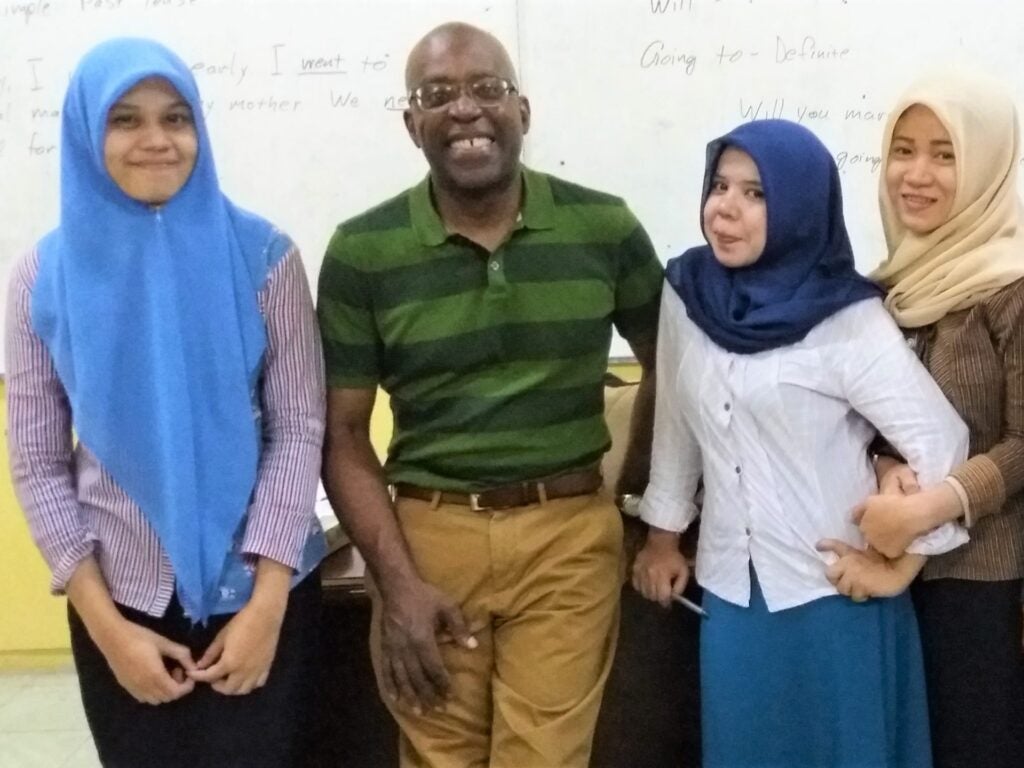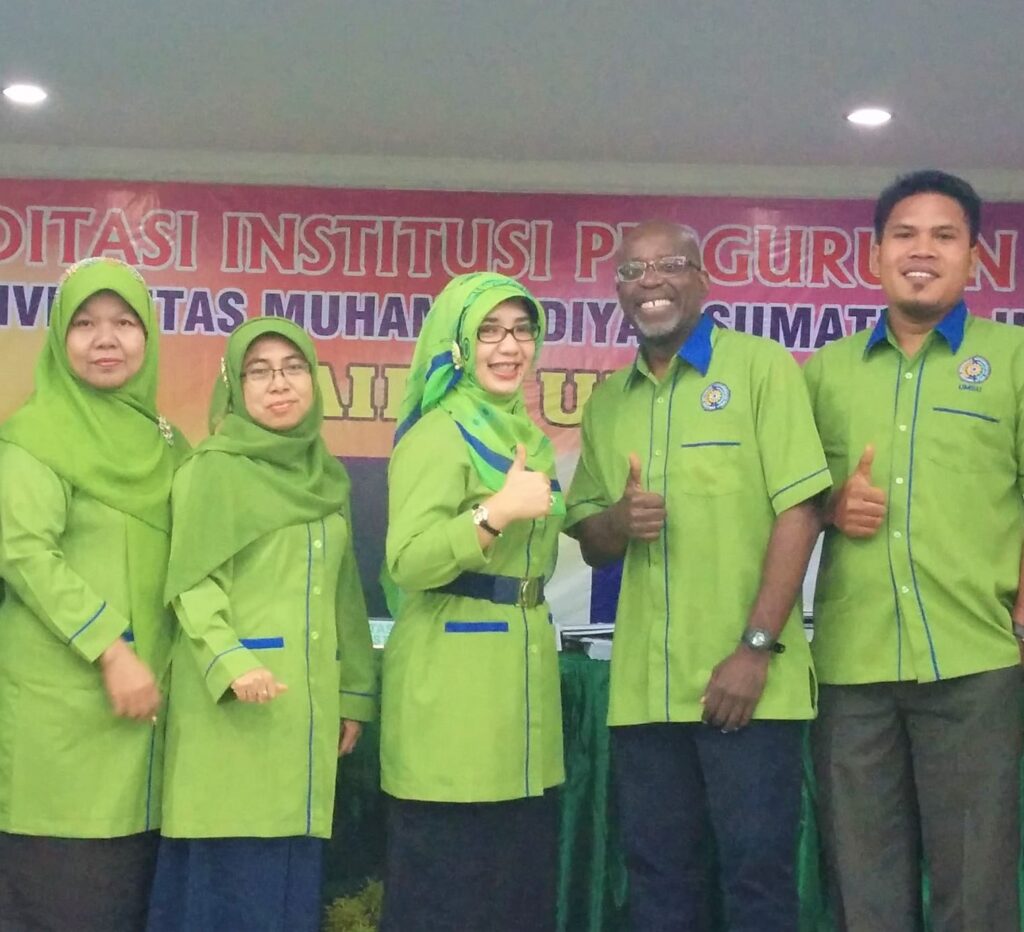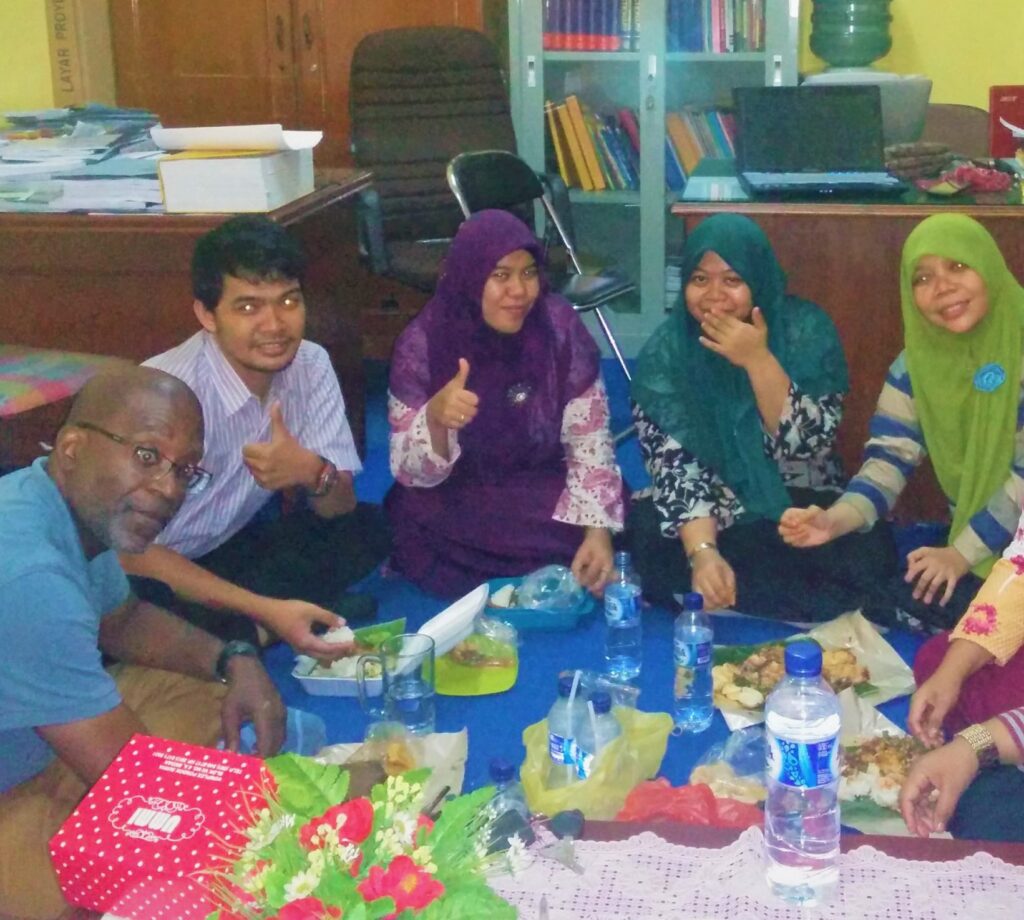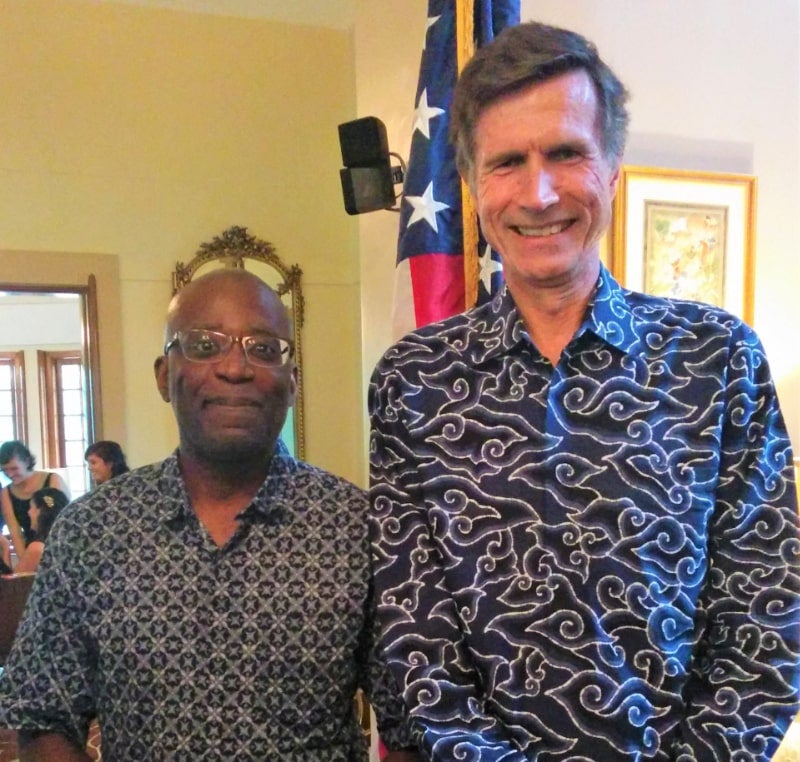Sheridan Honore was an English Language Fellow in Indonesia, 2014-2016. At his host institution, Muhammadiyah University in the city of Medan in North Sumatra, his primary duty was serving as an instructor in the Department of English Education. He taught several different EFL courses to undergraduates, including English Literature, Public Speaking, and Debate. He also participated in campus life by helping to put on programs for students, such as speaking and writing contests. His secondary duties consisted of traveling around the country and facilitating professional development seminars for local educators, Peace Corps volunteers, and Fulbright English Teaching Assistants.

Expanding Perspectives
For Sheridan, one of the biggest takeaways from his fellowship was how it helped him expand his worldview and how he was able to do that for others. Living in Indonesia, he learned about local customs, values, religions, and cuisine. By observing his students and colleagues, he noticed cultural differences in interpersonal communication. For example, when he asked his class a question, they would often discuss this amongst themselves for several minutes before answering together, rather than one person raising their hand, which is typical in the United States. Sheridan explains, “This made me appreciate that Indonesian culture is very much about group consensus, as opposed to the often individualistic style of Americans. Once I learned this, I began tailoring our discussions and activities in more group-oriented ways.”

Soon after arriving in Indonesia, it became clear to Sheridan that, in addition to his teaching duties, his mere presence heralded another important learning moment. “In many instances,” Sheridan states, “I was the first African-American that my Indonesian students had ever met, and I found that many of them seem to believe that most Americans are white. When I would tell them I’m from America, I was usually met with looks of disbelief. They would say, ‘You mean you’re from Africa?’ I would reiterate that I’m from America, and then I would open up the discussion about America’s rich cultural and ethnic diversity.” Sheridan began to see this type of interaction as a teachable moment, expanding his lessons to include learning materials on Native American tribes such as the Iroquois, Cherokee, and Apache, and the jazz musicians Dizzy Gilespie and Miles Davis.
In many instances, I was the first African-American that my Indonesian students had ever met, and I found that many of them seem to believe that most Americans are white. When I would tell them I’m from America, I was usually met with looks of disbelief. They would say, ‘You mean you’re from Africa?’ I would reiterate that I’m from America, and then I would open up the discussion about America’s rich cultural and ethnic diversity.
Bonding Over the Glorious Food
Sheridan expressed gratitude for the incredible hospitality he experienced in Indonesian culture. His colleagues and students were always checking on his health and general well-being, ensuring that he was enjoying his time in their country and feeling fulfilled with his teaching duties. They also went out of their way to make sure he was well fed everyday, meeting in the dean’s office before and after classes to have breakfast and lunch together. For breakfast they often enjoyed bubur ayam, rice porridge with shredded chicken; and for lunch, nasi goreng, fried rice with green pepper served in coconut palm leaves. “The glorious food in Indonesia was an essential part of my experience there,” Sheridan says. “I was living among the Batak people of North Sumatra, and my neighbors were mostly Indonesian Chinese. That means I had an opportunity to eat all kinds of different amazing cuisine.” Sharing those meals with his new neighbors and friends is one of the things Sheridan misses the most about Indonesia. He also shared a favorite Indonesian phrase that was a key to his pleasurable dining experiences, ‘Tidak pedas!’ which means, ‘Not spicy!’

Inspired to Learn
Flush with fresh motivation after completing the second year of his fellowship, Sheridan moved to China for two years to keep his journey of teaching overseas alive. For his first year in China, he taught a standard American high school curriculum at an international high school in the city of Ningbo in Zhejiang Province. Seeking a new challenge for his second year, Sheridan ventured to the city of Jilin in Changchun Province in Northern China to work for a local university. Upon returning to the U.S., Sheridan began working for the City University of New York (CUNY) in a variety of roles. At Hunter College, he serves as a TESOL Field Supervisor, overseeing and mentoring student teachers working on obtaining their New York State TESOL certification to teach in New York City public schools; at Lehman College, he works as an instructor in their adult ESL program. Sheridan notes, “The teacher training work I did during my fellowship helped prepare me for my current role as a teacher mentor.”
Staying Open to Life and Ready for the World
Sheridan’s fellowship opened him up to new possibilities, both personally and professionally. Having the opportunity to travel throughout Southeast Asia was a gift. He loved being exposed to so many different cultures, as it challenged him to question his assumptions and worldview. He observed that people’s values and ways of attaining happiness are largely shaped by their cultural perspective. From a professional standpoint, Sheridan was pleased to discover just how much he had to offer from the depth and breadth of his experience. “The variety of projects I worked on as a Fellow gave me the opportunity to share my professional expertise not only with young Indonesian pre-service teachers, but also with people who had already been in the classroom for quite some time,” he explains.

Sheridan credits the degree of creative freedom that he experienced as a Fellow with helping him to be receptive to new possibilities in life. “I believe in trying to be open to life, but sometimes this can be difficult because of fear of the unknown,” Sheridan reflects. “My fellowship gave me an opportunity to open up to life as it is lived by people in other parts of the world. You don’t have to give up your beliefs or values, but your time abroad will definitely expand your perspective.”
